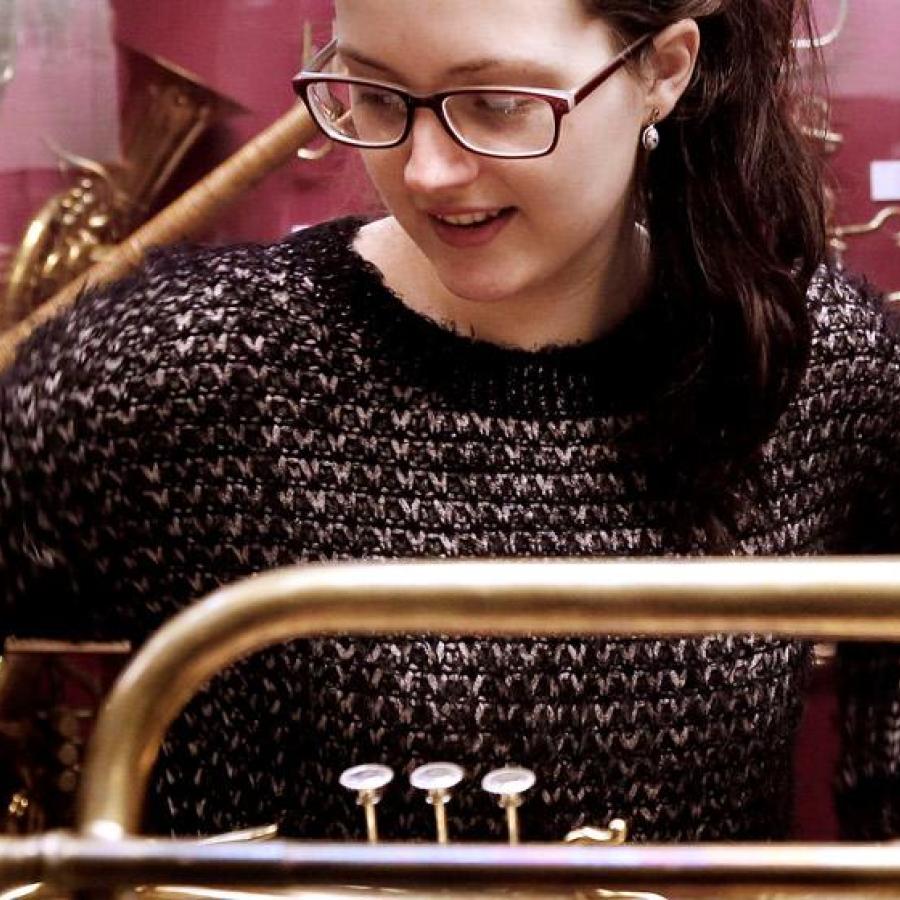Dr Nikki Moran

Job title:
Senior Lecturer in Music
Role:
Subject area director of education
Office:
Room 3.07, Alison House
Research Output:
Edinburgh Research Explorer linkBiography
I am a musicologist with an interdisciplinary specialism in music psychology and ethnography. My work examines the social situation of musical performance, focusing on the interpersonal processes that enable people to participate in expressive arts. My projects to date have involved elite North Indian instrumentalists, jazz and free improvisers, and western classical ensembles and conductors. Recent publications include articles on musical mind and imagination for Music & Science (SAGE) and the Journal of the Royal Musical Association (Cambridge Core). My current project, funded by an RSE Personal Research Fellowship (2024-5), addresses the function and nature of 'accompaniment' as a creative-relational mode of interaction, based on detailed musical ethnographies of expert accompanists.
I am lead author and presenter of the University of Edinburgh Coursera MOOC (Massive Open Online Course), Fundamentals of Music Theory, engaging 300,000 active learners and recruiting around 500 new students per week. My teaching practice is recognised as outstanding by a EUSA Best Course award and successive Teaching Award nominations. I led the four-year undergraduate MA Music (Hons) programme until 2022, with outstanding overall student satisfaction ratings (NSS 2021, 2022). This curriculum and course design project connected many issues in my research: to do with the role of conventional music literacy in HE and music scholarship, access and opportunity in music education, and critical approaches to scientific and public discourse around music.
I hold a number of external appointments, these currently include External Examiner for Music (UG) at Queens’ University Belfast and incoming Editor-in-Chief of Psychology of Music (SAGE). I am a former President of the International Society for Interdisciplinary Musicology (2022-4), and co-Chair of the RSE Young Academy of Scotland (2019-21).
Research interests
- Music as social interaction
- Situated cognition
- Performance research
- Improvisation and creativity
- Non-verbal communication
Current and recent teaching
Presenting lecturer and co-author of the 'Fundamentals of Music Theory' MOOC, hosted by Coursera.
- Fundamentals of Music Theory (UG) *
- Music and Human Communication (UG) *
- Creative Practice Music Project (UG)
- Dissertation supervision (UG)
- Introduction to Musicology (PG)
- Music, Style, Identity and Image in the Modern Age * (UG) [EUSA Teaching Award 'Best Course' overall winner, 2017]
* Course Organiser
Blog posts and video presentations
- Music and the Hidden Curriculum https://blogs.ed.ac.uk/fundamentalsofmusictheory/2020/06/30/presentation-part-1/ **
- Hybrid course design: virtual walk-through https://blogs.ed.ac.uk/fundamentalsofmusictheory/2020/07/01/presentation-part-2/ **
- Critical course design features https://blogs.ed.ac.uk/fundamentalsofmusictheory/2020/07/01/presentation-part-3/ **
- Online assessment: Using quizzes in Learn https://digital.eca.ed.ac.uk/hybridteaching/learn-quizzes/
- Sharing an experience - Media Production Studios https://digital.eca.ed.ac.uk/hybridteaching/production-studios-experience/
** From Appleby-Donald and Moran (2020), ‘Critical approaches to the hidden curriculum with hybrid learning in music’, University of Edinburgh Learning and Teaching Conference, June 25, 2020.
Research
Research
All of my research challenges hegemonic values of musical practice and listening by exploring the relationship between musical performance and everyday social interaction. This situated, pragmatic and interdisciplinary approach to creative human communication has so much to reveal about social minds, life and behaviour, with ethical implications that are profound for both music research and arts education. My interdisciplinary work - both theoretical, and original empirical research – is published and widely read across musicological, scientific and educational research communities.
My current research examines the creative function of accompaniment in both artistic and everyday settings. Accompanying and being accompanied are crucial skills of musicianship and central features of musical training and lives, yet very rarely the focus of musicological inquiry. My new work is focused on developing an original framework using communication theory and ethnomusicology to articulate the dynamic social and creative dimensions of the practice of accompaniment. By foregrounding accompaniment through detailed ethnomusicological case studies with elite collaborative musicians, this study aims to reframe the scholarship and practice of artistic expression, performance, and technologically mediated interaction. I’m excited about the way that this approach suggests new possibilities and priorities for creative arts education and enunciating a vital link between the skills and craft of both musical performance and social life.
I am a Research Affiliate of the Edinburgh Futures Institute, and member of the EFI cluster ‘Creativity, AI, and the Human’. My study group, Musical Situations (co-led by British Academy fellow, Una MacGlone) brings together early career and established researchers to share knowledge and exchange ideas, and support one another in professional development.
PhD Supervision Topics
- Currently welcoming proposals which align with the Musical Situations study group.






